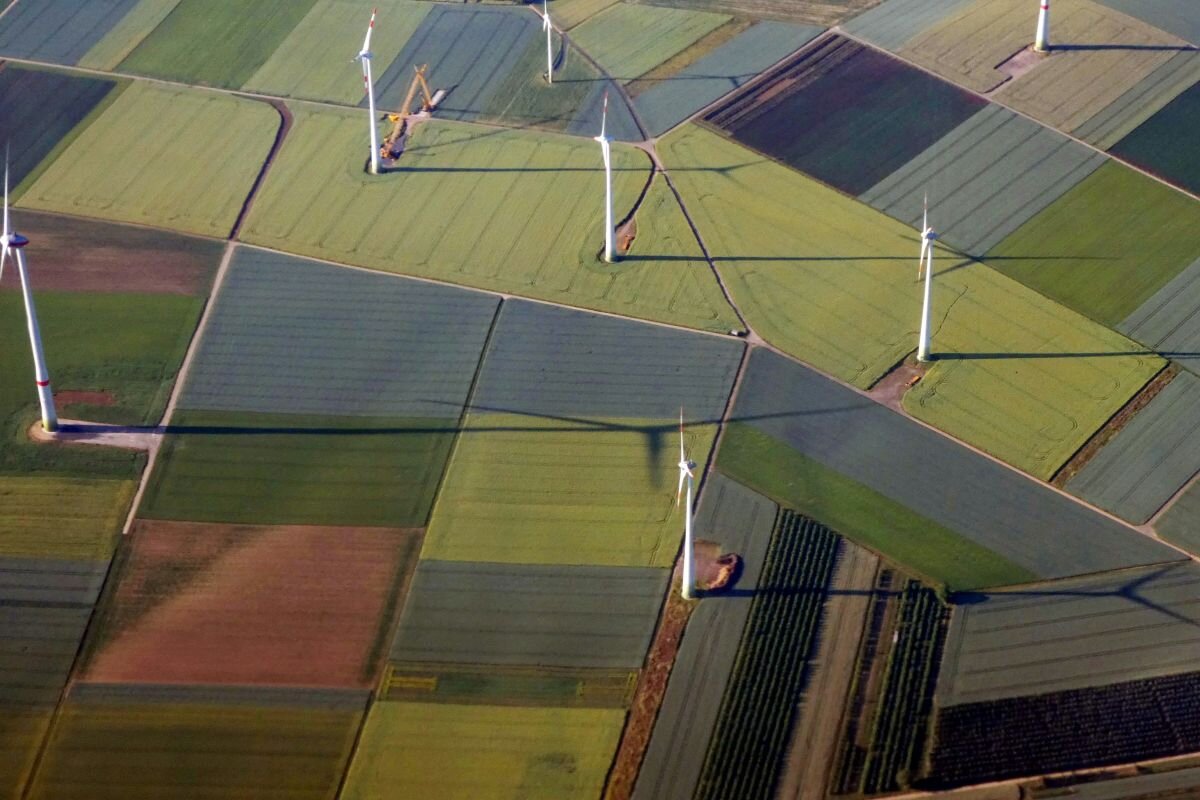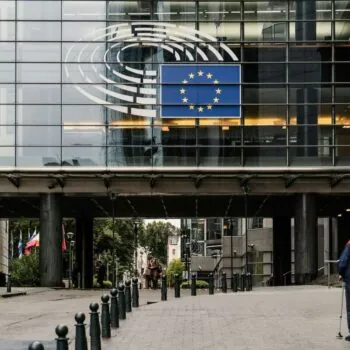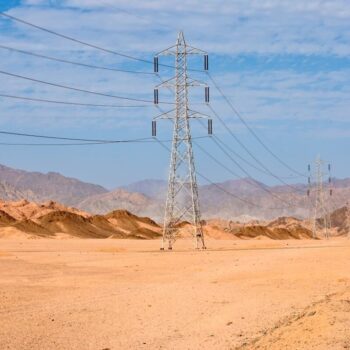On 16 October 2025, the European Commission’s star-studded climate diplomacy team – EVP Ribera, Commissioner Jorgensen, and Commissioner Hoekstra – will present the new European Commission Communication on “A global vision with global energy and climate diplomacy objectives ahead of COP30.”
- The communication will aim to provide a refreshed framing for the EU’s external action on climate and energy. With COP30 on the horizon, it will be an important test of how well the EU is managing to realign its international climate action and external energy policy with a changing global geopolitical and energy landscape. A flexible, delivery-focused approach can emphasize the EU as a bold actor on the world stage.
- In particular, the strategy will be an opportunity for the EU to use climate and energy transition to bring together its internal and external agendas. This includes using global climate action as a route for strengthening the Clean Industrial Deal, more explicitly tying support for the global climate and energy transition with broader goals around geopolitical influence, and increasing domestic security by reducing structural dependencies.
- On the same day, the EU will also launch its New Pact for the Mediterranean, setting outs its new overall strategic approach to the Southern Neighbourhood. The Commission has set ambitions high, but it remains open whether the Pact succeeds in its ambition to provide an innovative vision for regional cooperation. Climate and energy transition elements can unlock new opportunities across Europe and the Mediterranean around industrial competitiveness, energy security, job creation, regional stability and economic resilience.
EU Communication on “A global vision with global energy and climate diplomacy objectives ahead of COP30”
The key things to watch out for this Thursday will be:
- Confident pathfinder or inward-looking bystander: Will the strategy mark a real step up in EU external climate action, with targets and agreements being converted into geopolitical influence and a competitiveness boost?
We will be watching out for: Whether the strategy will be a recap of existing EU initiatives or establish a real drive for rapid delivery of climate and energy transition cooperation. This can include recalibrating tools such as partnerships or plurilateral initiatives to ensure they appeal to domestic stakeholders and external partners at the same time. - Flexible partner or old mechanisms: Will the EU take a confident role in driving forward a new era of more flexible multilateralism and partnerships?
We will be watching out for: Whether the strategy establishes actionable mechanisms for the EU to fulfil its ambitions as a bold actor with a flexible approach towards climate and energy cooperation. This includes whether the Global Energy Transition Forum (GETF) is framed as key forum to showcase how the global climate and energy transition progresses, and whether the EU embraces coalitions of the willing to accelerates the global energy transition. - A new approach to regulatory action: will the strategy mark a turning point in the EU’s regulatory approach, bringing support to countries highly exposed to CBAM and wider regulatory requirements?
We will be watching out for: Whether the strategy will step up the support offer to developing countries around CBAM, including support developing countries most affected by, and least able to adapt to, the impacts of CBAM. More broadly, we will be watching to see how the communication plays towards strengthened ‘Team Europe Initiatives’ that can offer upstream policy assistance to help countries with climate planning, policy framework development, and project pipeline preparation. - Jigsaw pieces or more coherence: will the strategy manage to better coordinate external aspects of climate and energy transition policymaking, including financing?
We will be watching out for: Whether the Commission will propose new intra-EU coordination mechanisms, including on better joining up external climate and energy transition action and strategic communication with domestic priorities around the Clean Industrial Deal. On finance, we’ll be looking out for whether the EU can make greater use of its relative stability in external financing in a time of uncertain Member State development finance programming.
Responding to the Commission’s call for evidence, E3G set out five proposals for the communication.
New Pact for the Mediterranean
- The New Pact will be a key test for the Commissioner for the Mediterranean, and will reflect the EU’s intent to deepen partnerships across a diverse Southern Neighbourhood. Climate impacts are a common challenge across the Mediterranean region, while energy transition offers new opportunities for region-wide industrial growth and partnerships.
We will be watching out for: Indications of how the EU plans to cooperate on energy transition across the Southern Neighbourhood ahead of the upcoming launch of the EU Trans-Mediterranean Energy and Clean Tech Cooperation Initiative – particularly the scale of ambition of any planned financing or new coordination mechanisms. We will also be looking out for whether climate is framed as one of many siloed issues, or whether it is incorporated into wider planning on security and economic policy, given its growing impact on files including migration, regional stability and economic development.
Earlier this year, E3G and ECCO published a series of recommendations for the New Pact for the Mediterranean and the Trans-Mediterranean Energy and Clean Tech Cooperation Initiative.
Quotes
EU Communication on “A global vision with global energy and climate diplomacy objectives ahead of COP30”:
Anton Jaekel, Policy Advisor in E3G’s Climate Diplomacy & Geopolitics team, said:
“The global climate and energy transition directly impacts the EU’s physical and economic security and its geopolitical aspirations. In a warming and volatile world and with COP30 on the horizon, the Global Climate Energy Vision is an opportunity and a test for the EU’s ability to align domestic priorities and global aspirations. By positioning itself as reliable and committed partner, the EU can demonstrate that its partnership deliver mutual benefits, and through that gain a competitive edge.”
Richard Smith, Senior Policy Advisor in E3G’s Energy Transition team, said:
“This strategy is about much more than climate. It’s a real test for how quickly – and how well – the EU can adapt a flagship policy in the face of rapid geopolitical change. Can they give European industry a step up by integrating global climate action with the Clean Industrial Deal? Can they seize the business opportunities of energy transition as China is doing? Can they leverage their massive support to global climate action to gain more geopolitical clout or will CBAM remain a blocker? These opportunities require coordination across the whole Commission ecosystem – so let’s see if this new strategy can deliver that.”
Steffen Menzel, Programme Lead in E3G’s Climate Diplomacy & Geopolitics team, said:
“As geopolitics reshape the global order, the world is also entering a new era of climate cooperation. The challenge is not so much in knowing what to do – we do know – but to get the EU and its members states to adapt its external action accordingly. To thrive and safeguard its strategic autonomy amid uncertainty and disruption, the EU must work pragmatically with both traditional allies and new partners – staying true to its values while delivering mutual benefit.”
The New Pact for the Mediterranean:
Richard Smith, Senior Policy Advisor in E3G’s Energy Transition team, said:
“In North Africa – home to the Sahara Desert – less than 1% of the total renewable energy generation potential is currently utilised. The picture is similar across the MENA region. It’s no exaggeration to say that working with the Southern Neighbourhood to unlock even a tiny fraction more of this would deliver economic growth, industrial opportunities, jobs, stability and security – and similar benefits for Europe too. The New Pact needs to set out a pathway for delivering this, looking ahead to the launch of the new EU Trans-Mediterranean Energy and Clean Tech Cooperation Initiative early next year.”
Available for comment
EU Communication on “A global vision with global energy and climate diplomacy objectives ahead of COP30”:
Anton Jaekel – E3G Policy Advisor (EN, DE) – EU Climate Diplomacy, EU Foreign Policy.
anton.jaekel@e3g.org | m: +49 (0) 160 2421044
Richard Smith – E3G Senior Policy Advisor (EN) – Global Energy Transition.
Richard.smith@e3g.org | m: +32 490 00 05 15
New Pact for the Mediterranean:
Richard Smith – E3G Senior Policy Advisor (EN) – Global Energy Transition.
Richard.smith@e3g.org | m: +32 490 00 05 15
Notes to Editors
E3G is an independent climate change think tank with a global outlook. We work on the frontier of the climate landscape, tackling the barriers and advancing the solutions to a safe climate. Our goal is to translate climate politics, economics and policies into action. About – E3G
For further enquiries email press@e3g.org or phone +44 (0)7783 787 863.
Register for our journalist WhatsApp briefing service to receive updates and analysis for key geopolitical and climate events over 2025 on the road to COP30: E3G WhatsApp registration for journalists – E3G.


